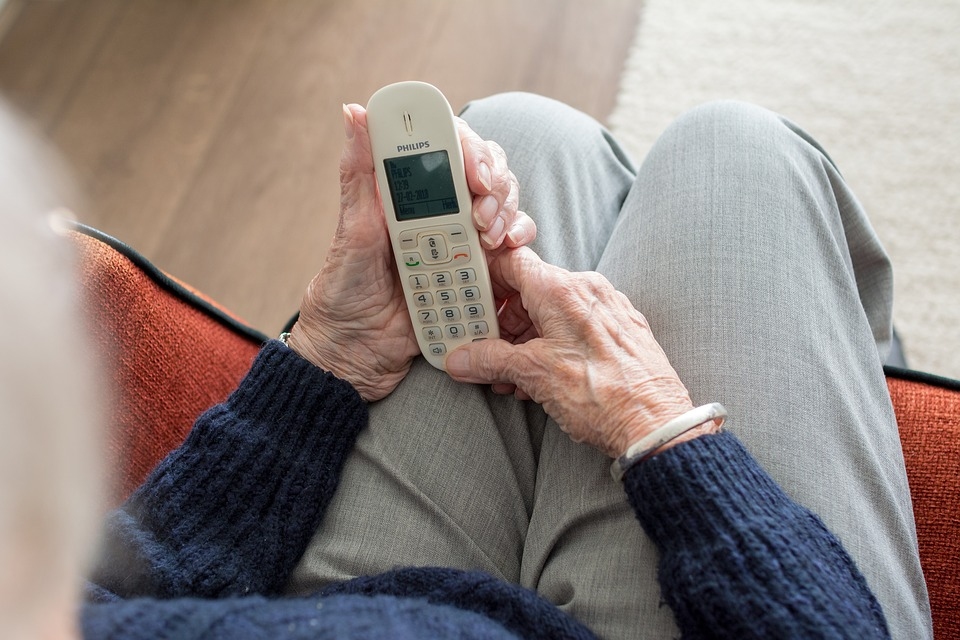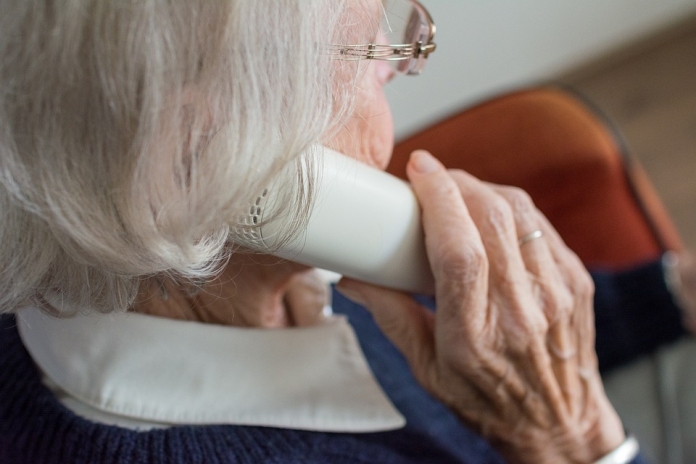A Somerset woman is urging people to be wary of the signs of courier fraud as she hopes to prevent other people losing money like she did.
Sylvia, who has asked for a pseudonym to be used to protect her identity, lost thousands of pounds through such a scam last year.
In 2022, 60 victims of courier fraud in Avon and Somerset reported losses of £278,936.
Sylvia, who is in her 80s and lives in Somerset, received an unexpected call from a fraudster who claimed to be a detective in London.
He told her they had someone in custody called Lucy who had told them she was a relative and carer of Sylvia, which she told them was untrue.

The detective explained Lucy had been arrested for possession of stolen jewellery and gold and that she was also part for a large-scale fraud case at the same bank Sylvia used. Sylvia was spun a story that Lucy had withdrawn £500 from her account, but then put it back in, which was of suspicion to the police.
Sylvia was then asked to help the police out by withdrawing £4,000 from her bank.
At this point she feared it was a scam and so to appease her fears, the fraudster posing as a detective told her to call the number on the back of her bank card to check it was legitimate.
Unfortunately, because Sylvia used the same phone, the fraudster did not hang up the previous call so when she tried to call the bank, she ended up speaking to the same fraudster she had just been on the phone to as he kept the line open.
When the fake detective recalled, he convinced Sylvia to go to her local bank and withdraw the money while on the phone to him and lie to the cashier as to why she needed the money.
With the £4,000 back at her home address, Sylvia was again called by the fake detective. He asked her to read out the serial numbers of the bank notes and proceeded to tell her that these were counterfeit notes, which he said confirmed Lucy’s guilt and therefore the cash needed to be collected for evidence in court.
To further convince Sylvia everything was above board, he gave her a password that a courier would give when picking up the money. Within 20 minutes the courier arrived and took the cash, plus a further sum from her pension account which the fake detective said would also be of use to their investigation, taking the total loss to about £8,000.
Sylvia was just left with a falsified receipt so she could be reimbursed, but as it was a scam she was left thousands of pounds out of pocket.
Sylvia said: “I have had many scam calls before and picked up on it right away, but this one was so convincing that I think people need to be on their guard.”
“When they say they are the police you believe them don’t you?”
“When I look back on it now, I should have gone directly to the bank or police to check. If I’d been able to stop to think, I would have done that, but they don’t give you the time to do that. It’s scary how convincing they are.”
Fraud protect officer Amy Horrobin says: “Sylvia has been left feeling rather shaken, frustrated with herself and not knowing who she can trust. She has received support from officers and advice from fraud protect officers, because often victims are vulnerable to being targeted again by fraudsters.”
Somerset’s PCC Mark Shelford, lead PCC for Economic and Cybercrime, says: “Sylvia’s story is heart-breaking; these ruthless criminals posed as trusted officials, applied pressure until she let her guard down in order to take her money.”
“Unfortunately, Sylvia’s story is not a one off; the shocking new data reveals fraudsters tend to target elderly residents so I want to encourage family members supporting older loved ones to be vigilant, especially for incoming phone calls, couriers arriving by motorbike or taxis and visitors who unexpectedly arrive. By having conversations with family and friends about the signs and risks, it could prevent them from being a victim of fraud.”
“To everyone, remember banks or police officers will never send a courier to pick up cash, bank cards or pin codes from individuals. Anyone who thinks they are being targeted, please report to Action Fraud and to your bank.”
How to spot courier fraud:
Data from the National Fraud Intelligence Bureau, run by the City of London Police, the national lead force for fraud, revealed that across the country people in their 70s or older lost more than £12.6million to courier fraud last year, 77 per cent of all money stolen by this type of fraud.
The split of fraud reports nationally made by men and women aged 70 or above was 37 per cent and 63 per cent respectively. In total 153 reports were made by people in their 90s with one report being from someone aged over 100.
Once fraudsters establish contact, they manipulate their victims with convincing stories, often claiming that there has been fraudulent activity on their bank accounts, as happened with Sylvia.
Ways in which courier fraud can be carried out varies from collecting cash or bank cards through to asking victims to buy jewellery and gift cards.
Amy said: “The most consistent tactic is the fraudster claiming to be from a reputable organisation, whether it be your bank, HMRC or the police. They will try to convince their victims it is real and put pressure on them to create a sense of urgency.”
“The best thing to do is to remember Take Five, Tell Two – that is to take five minutes to consider if you might be being scammed and tell two other people who may be able to spot red flags you can’t in a pressurised situation.”
“We can 100 per cent guarantee though that the police or your bank will neverask you to withdraw cash or buy jewellery as part of any enquiries. You will also never be asked to lie to your bank. No matter how insistent or convincing the fraudster is, if you are told to do that we can guarantee it is a scam and you should hang up immediately and report it to Action Fraud.”
“The amount of money lost to this scam is eye-watering and we know the true figure is likely to be much higher as many victims are reluctant to report it because they feel embarrassed or want to hide the fact they were deceived from loved ones. But nobody should feel shame, these are professional fraudsters who prey on people trying to help and that makes it even more despicable.”
Top safety advice:
- Your bank or the police will never call and ask you to verify your personal details or PIN. If you get a call asking you to do this, hang up, wait a few minutes and call your bank on a number you know to be genuine, such as the one on the back of your card.
- Your bank or the police will never send a courier to your home to collect your cash, bank cards, PINs, or any other valuable goods. Any requests to do so are part of a scam.
- The police will not contact you out of the blue and ask you to participate in an investigation that requires you to withdraw money from your bank, or to purchase high value goods, such as jewellery or gold.











